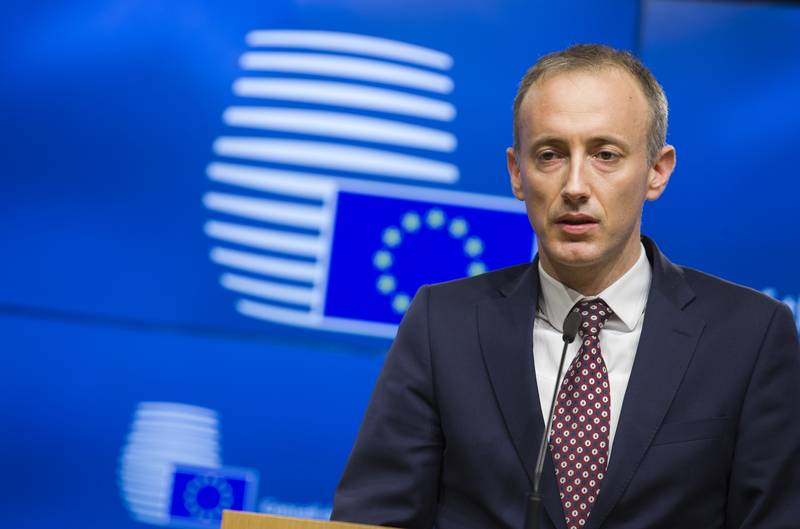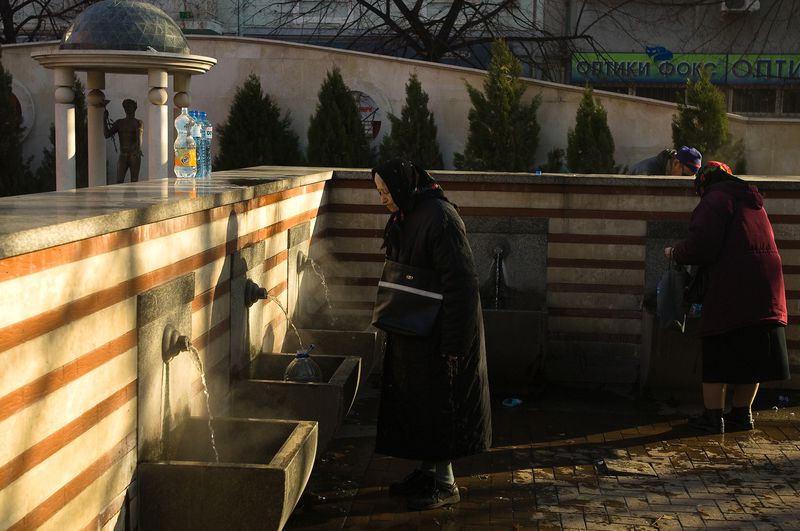Education Is the Key for Implementation of "Bulgaria 2020" Strategy
Ralitsa Kovacheva, March 21, 2012
 The draft programme for national development "Bulgaria 2020" can be described briefly like this: a lot of ‘what’ and a little of ‘how’. The good news is that the draft objectively presents the real challenges facing the country, and its goals are quite logical national priorities, reflecting the EU objectives as set in Europe 2020 strategy. The document aims to present the government's vision on how Bulgaria should look like in 2020, the objectives to be achieved and the means to be used. The latter, however, is poorly developed, perhaps because this is still a first draft of the document, currently subject to public discussion.
The draft programme for national development "Bulgaria 2020" can be described briefly like this: a lot of ‘what’ and a little of ‘how’. The good news is that the draft objectively presents the real challenges facing the country, and its goals are quite logical national priorities, reflecting the EU objectives as set in Europe 2020 strategy. The document aims to present the government's vision on how Bulgaria should look like in 2020, the objectives to be achieved and the means to be used. The latter, however, is poorly developed, perhaps because this is still a first draft of the document, currently subject to public discussion.
Or because the strategy is only the framework in which the individual goals and priorities are yet to be specified. It is also "the constitution of programming and planning” for the next EU multiannual financial framework, in the words of Tomislav Donchev, minister for EU funds management. Based on the document, the potential beneficiaries of EU funds will decide how to turn words into projects and respectively - into actions. It is therefore important, firstly, the Bulgarian priorities to reflect those set by the European Commission in the draft 2014-2020 financial framework, and on the other – to be defended and justified by the Bulgarian government in the form of specific projects under the strategy.
Government's vision for Bulgaria 2020 has fictional rather than practical value for many reasons, including the fact that the year is 2012 and we know how fast the country can carry out reforms. Nonetheless:
"By 2020, Bulgaria is a nation with a competitive economy, ensuring conditions for full social, creative and professional realisation of personality through smart, sustainable, inclusive and balanced regional growth."
The three main objectives in the strategy are:
Raising living standards, access to quality education and training, employment, as well as affordable and quality health care.
Development of infrastructure networks (transport, energy, water).
Enhancing economic competitiveness by improving business environment, innovation and resource efficiency.
Without underestimating the importance of infrastructure, I am going to elaborate on the other two objectives because in terms of infrastructure everything is clear – we will build highways, regional wastewater treatment plants, waste collecting depots, restructure and upgrade railways. As to the other two objectives, however, the matter appears neither simple nor clear or specific.
The strategy is accompanied by a SWOT-analysis of the Bulgarian economy and a socio-economic development analysis, on the basis of which the main challenges and counter measures are set out. The socio-economic analysis is an extremely useful reading, although sometimes it is difficult to see how the described problems are reflected in the strategy. In this article I will focus in details on the first objective, and especially on education because, as euinside repeatedly wrote, education deserves to be turned into a national priority, as it is the key to economic and social development.
In the Bulgarian context, education seems to be that vital factor that can deal with all the ills of the economy, including with one of the biggest risks facing the country – ageing population. According to UN data, cited in the analysis, Bulgaria is among the ten most ageing countries in the world. A quarter of the population is over 60 years old and by 2050 it will be one third of the population. Ageing exerts increasing pressure on public finances and the labour market, thus becoming a major factor that must be accounted for when making reforms in education, health care, social systems and economic structure.
The simple conclusion from the fact that the working population is steadily  decreasing is not only that workers should work longer (which is inevitable), but they should work better, be more productive and produce higher added value. However, this cannot happen without quality education. The big problem of this strategic document is that it repeats objectives formulated long ago, that should have already been achieved, or at least be in progress – from the maximum coverage of children in kindergartens and schools to updating curricula and creation of real external evaluation.
decreasing is not only that workers should work longer (which is inevitable), but they should work better, be more productive and produce higher added value. However, this cannot happen without quality education. The big problem of this strategic document is that it repeats objectives formulated long ago, that should have already been achieved, or at least be in progress – from the maximum coverage of children in kindergartens and schools to updating curricula and creation of real external evaluation.
Updating the model of accreditation and quality evaluation in higher education is also a perennial, but imaginary Bulgarian goal. The analysis accompanying the strategy once again finds that Bulgarian universities overproduce economists at the expense of skilled workers for the technical field. When attempting to update the educational system, ageing again turns out to be a serious problem. In kindergartens the ratio between teachers over 50 years and those under 30 is almost 12:1. In schools 38% of teachers will retire in the next 5-6 years and there is no influx of young people. The situation is similar in higher education, where the number of PhD students is falling.
It is not clear how exactly these problems will be addressed, aside from "development of financing models, oriented to educational results and labour market realisation" and by "development and implementation of flexible forms and ways to ensure passability in education and training". What specific action is hidden behind those enigmatic phrases we can only second guess. The strategy though hopes that by 2020 we will after all have a new law on pre-school and school education (it is currently being discussed) and a new law on Science and Higher Education (it was proposed yet in 2010 but then was ingloriously withdrawn). The project also provides for the establishment of a National Education Inspectorate, through which a comprehensive system of external evaluation of schools` activities will be introduced.
The measures to improve the quality of the workforce, like most European papers, begin with "promoting the lifelong learning," go through career centres and creation of youth centres and end with "creating conditions for increasing activity in physical exercises and sports int he spare time, as a method for healthy lifestyle and a condition for improving the quality of the workforce." I do not know about sports, but lifelong learning is extremely unpopular in Bulgaria - only 1.3% of the population participates in some form of lifelong learning, compared to 9.3% EU average.
 Obviously, there is a need for more learning, given that 60.5% of workers have only secondary education, those with higher education are 27.1% and 12.4% have primary or lower education. This ratio must change if Bulgaria wants to develop sectors with high added value. The share of youth unemployment remains steadily around 18%, as people with no speciality and qualification are predominant. Most of the long-term unemployed persons are also with no qualifications and low education.
Obviously, there is a need for more learning, given that 60.5% of workers have only secondary education, those with higher education are 27.1% and 12.4% have primary or lower education. This ratio must change if Bulgaria wants to develop sectors with high added value. The share of youth unemployment remains steadily around 18%, as people with no speciality and qualification are predominant. Most of the long-term unemployed persons are also with no qualifications and low education.
But the big question, the answer of which we do not find in "Bulgaria 2020" strategy is how the Bulgarian education will change not quantitatively, but qualitatively. Even if more kindergartens are built, schools are renovated and equipped with more computers, universities work closely with businesses, how will the education system teach our kids what they really need - to think, create, strive for realisation, be free and entrepreneurial. Updating the curriculum, as stated by the strategy, has not led to qualitative changes so far, but only to quantitative accumulation. I don’t really expect a political document to answer that question, but it was implacably chasing me while reading dozens of pages of priorities, sub-priorities and key measures.
Or maybe this is how it has to be - the state announces its support with the available means - money and rules, and the rest depends on us all, the Bulgarian citizens, now, in 2020 and thereafter. Now is the time to hear the professionals, parents, students, businesses, NGOs. You can join the discussion by sharing your opinion in the comments below this article. Here you can read euinside`s analysis of the measures aimed at enhancing Bulgarian economy`s competitiveness.
 | © European Union
| © European Union | © euinside
| © euinside Krasimir Valchev | © Council of the EU
Krasimir Valchev | © Council of the EU | © euinside
| © euinside | © EU
| © EU | © EU
| © EU